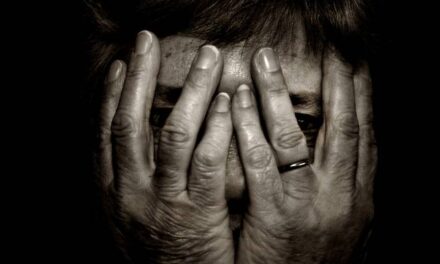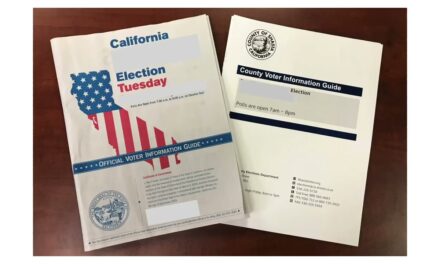
After years of efforts to decriminalize the sex trade in the United States, survivors of sex trafficking and anti-exploitation advocates are calling on state legislatures, including Pennsylvania’s, to adopt a new approach — one that places them and their experiences first.
Yasmin Vafa, co-founder and executive director at Rights4girls, a gender-based advocacy organization in Washington D.C., said that decriminalization policies, generally mean that all civil penalties for sex work would be removed regardless of involvement, do little to support survivors or hold those who exploit women accountable.
“We’re just seeing these efforts increase under the guise of progressive reform, progressive policies, helping marginalized people,” Vafa said. “And so, while some of these efforts are well-intentioned, and people are just promoting them, legislatures are promoting them under the guise of like we’re helping marginalized folks. Other people are much more insidious … other people know exactly what they’re doing.”
Instead, Vafa and other advocates are urging states to adopt what they call “survivor-centered” policy, modeled off a decades-old “pioneering” piece of Swedish legislation that embraces partial decriminalization.
“It was first called the Nordic model, but since then it’s become the prevailing global response to reforming the sex trade. So now it has multiple different names,” Vafa explained. “Some people call it the abolitionist model. Some people call it the equality model. But ultimately, it’s a partial decriminalization approach.”
The partial decriminalization model would protect sex workers from legal penalties, while penalizing those who sell or exploit sex workers, such as brothel keepers or pimps.
In June, Maine became the first state in the nation to adopt such a policy, which decriminalizes selling sex but keeps existing laws against buying it intact.
“It protects the most vulnerable people while holding accountable their exploiters,” Vafa said.
The problem with full decriminalization is that it removes the legal tools used by law enforcement to prevent sex trafficking and exploitation, according to Alisa Bernard, national campaign manager at World Without Exploitation, a coalition of organizations focused on ending human trafficking and sexual exploitation.
Bernard, a survivor of sex trafficking, added that full decriminalization would lead to more exploitation of underage girls, women of color, and other vulnerable people.
“When you decriminalize something, you’re actually increasing that demand for it because now it’s more accessible new people want in the marketplace, and there aren’t enough people who are the supply in this equation to kind of fill that void of demand, that larger amount of demand,” Bernard said. “The trafficking follows because there’s a capitalization on that like, literal incentive.”
Bernard said she, like Vafa, supports partial decriminalization efforts in the United States that are drafted to empower survivors of sex trafficking and exploitation.
“Under a model like this, we can actually assume that more people may come forward because they’re going to feel more empowered,” Bernard said. “They’re going to feel more agency to be able to come forward and say: ‘Hey, I have experienced a sexual assault I need I need to have a rape kit done.’”
But first, the legislation has to be adopted, Bernard noted.
Survivor-centered legislation, similar to the one enacted in Maine, is currently pending in New York and Massachusetts as well, Yafa said, adding that her organization has partnered with survivors and local coalitions in those states to help advance more empathetic policies. Pennsylvania, however, is a slightly different story.
Legislation in Pa.
Lawmakers in Pennsylvania are not currently considering any similarly comprehensive legislation, but there have been attempts to address education and awareness around sex trafficking and exploitation.
Earlier this year, state Rep. Robert Leadbeter (R-Columbia) introduced legislation that would provide free sex trafficking and exploitation prevention education to first-year college students at public universities.
The bill, House Bill 93, was referred to the House Education Committee in March but has yet to see a vote.
Leadbeter did not return the Capital-Star’s request for comment on the bill.
In the upper chamber, Sens. Camera Bartolotta (R-Washington) and Kristin Phillips-Hill (R-York) have introduced Senate Resolution 11, a resolution that would recognize January as “National Slavery and Human Trafficking Prevention Month” in Pennsylvania.
“Human trafficking is a pervasive worldwide problem that impacts nearly every community across our nation, including communities in this Commonwealth. Perpetrators use force, fraud, or coercion to manipulate and establish control over individuals who are being exploited for labor and sex,” the lawmakers wrote in a co-sponsorship memo.
Bartolotta and Phillips-Hill went on to say that the resolution will raise “awareness of the issue and acknowledge those who are fighting to stop human trafficking.”
The resolution was referred to the Rules and Executive Nominations Committee in January but has yet to see a vote.
While lawmakers in Pennsylvania aren’t currently considering a bill like the one adopted in Maine, Bernard said that survivors and advocates from various groups are “on the ground” to dialogue with policymakers and build a coalition of supporters.
“There’s a lot of conversations to kind of continue having on this,” Bernard said. “Because clearly, it’s a very nuanced issue. It’s not as black and white as decriminalize or criminalize it. There’s another common sense approach.”




